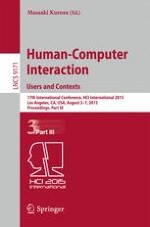2015 | OriginalPaper | Chapter
Post-Implementation ERP Success Assessment: A Conceptual Model
Authors : Fan Zhao, Eugene Hoyt
Published in: Human-Computer Interaction: Users and Contexts
Publisher: Springer International Publishing
Activate our intelligent search to find suitable subject content or patents.
Select sections of text to find matching patents with Artificial Intelligence. powered by
Select sections of text to find additional relevant content using AI-assisted search. powered by
